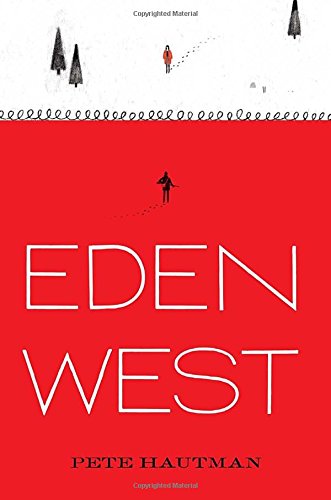 In the last few weeks, I have read two novels about cults: EDEN WEST by Pete Hautman and THIS SIDE OF SALVATION by Jeri Smith-Ready. I then revisited Jennifer Matthieu’s DEVOTED. After reading this thematic group of YA novels, here are a few observations that might be useful to writers:
In the last few weeks, I have read two novels about cults: EDEN WEST by Pete Hautman and THIS SIDE OF SALVATION by Jeri Smith-Ready. I then revisited Jennifer Matthieu’s DEVOTED. After reading this thematic group of YA novels, here are a few observations that might be useful to writers:
1. A Fundamental Sense of Agency. YA literature is noted for the centrality of its teen protagonists–a reason the “orphan” trope is common in the genre. While, in real-life, adults may offer help or guidance, in YA literature, teenagers solve problems largely on their own. In the cult setting, families are often separated by cult rules which, in many ways, strip parents of as much agency as their children. Thus, in the cult narrative, the young adult does not merely seek the independence adults are observed enjoying, but must discover the very existence of his or her own individuality and examine their rights to free thought and agency.
2. A Separate World. Cult settings disconnect teen protagonists from mainstream society, from the news, from education and other forms of opportunity; meanwhile “reality” still exists beyond cult boundaries. In contrast to dystopian settings, cult worlds generally reject technology and progress.
3. An Experiment in Extremes. Cult settings allow authors to explore the effects of extremes–be they rules, rituals, punishments, or beliefs–on individuals, particularly teens who are at the point in life where they are struggling to carve their own identities apart from family and peers.
4. A Promise. Cult novels incorporate a promise to its members that they are “chosen” to survive when outsiders do not. This promise is complemented by another: that of some type of apocalyptic event or punishment that will befall non-believers (a promise and a threat). Promises are tempting.
5. Search for Meaning. Teens (dare I say all human beings) struggle to find meaning in their daily lives and future plans. The core conceit of the cult novel is that MEANING is provided and it is up to the characters in the novel to decide if it is valid, helpful, or worth the sacrifices required. The cult frame offers the author a bright light and multi-faceted lens through which to look at critical questions of belief and identity.
While one should never set limits to creativity, as a writer I find it interesting and instructive to see what types of ideas lend themselves to exploration in various settings. For example, school settings may examine issues of peer pressure, substance abuse and romantic/sexual relationships. Dystopian worlds enable teen protagonists to resist, fight and lead in ways that might seem implausible at summer camp. And castles let teens find their own magic.
WRITING TIP FOR YOUR WORK IN PROGRESS. Examine the relationship between the setting and the theme(s) of your work. Make a list of at least three new ways you can use setting to raise tension, advance plot, or tighten focus on your MC’s actions or mood.
A few more cult titles for your consideration: NO PARKING AT THE END TIMES by Brian Bliss; THE SACRED LIES OF MINNOW BLY by Stephanie Oakes; GATED by Amy Christine Parker.


